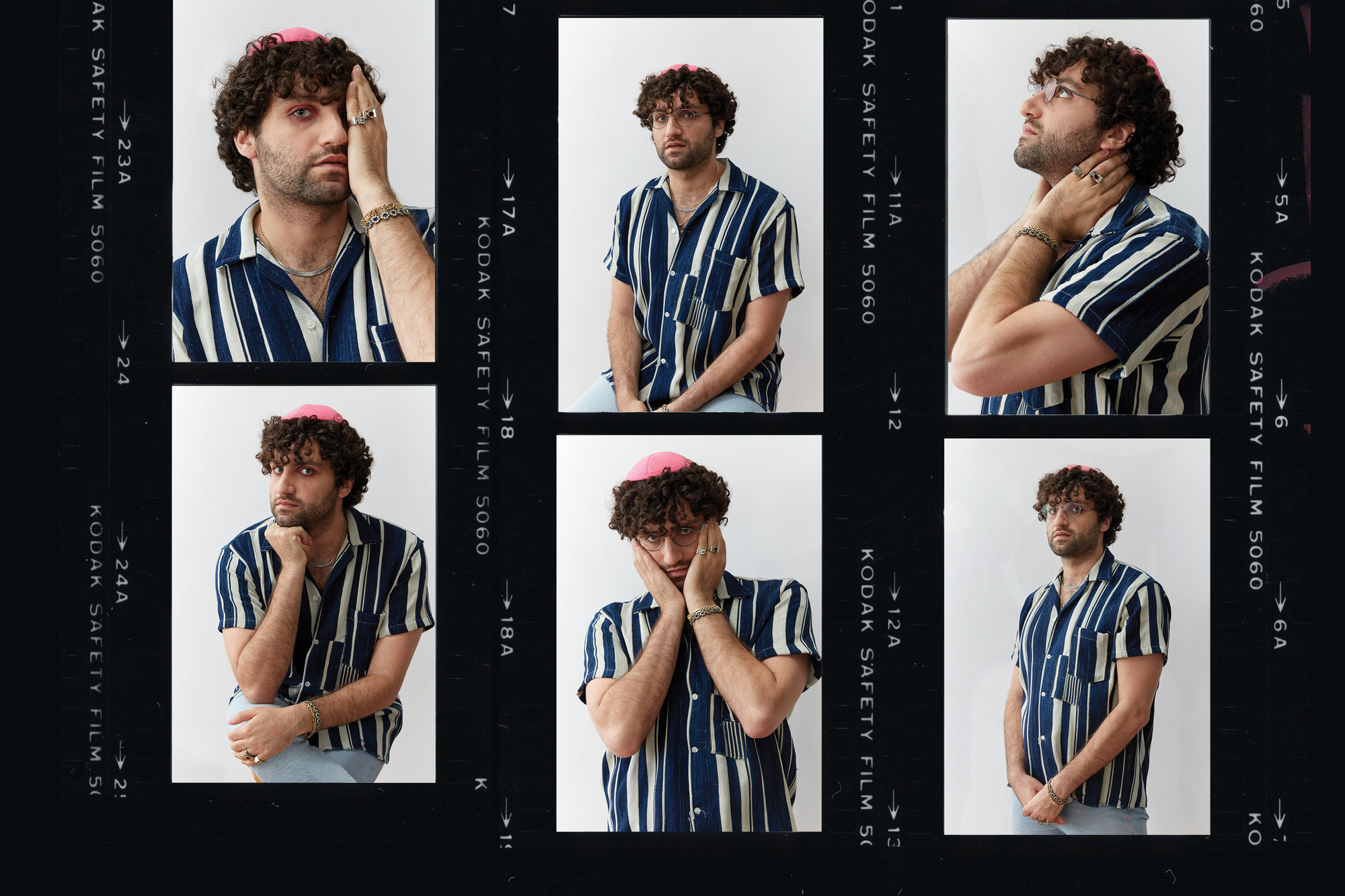In honor of WorldPride 2019 in New York, we’re partnering with local activist group Voices4 to donate 10% of full-price sales this weekend to organizations working toward its mission of global LGBTQIA liberation*.
THE Q&A
All for One, Voices for All

We admire Adam Eli for his activism, which was sparked by the 2016 Pulse massacre in Orlando. And for his follow-through: A year later, he founded Voices4–a direct action activist group fighting for global queer rights.
He's since grown Voices4 to over 100 members and organized over 30 events, including a march from Stonewall Inn to Trump Tower, and a “kiss-in” on the steps of the Uzbekistan Consulate General.
We sat with Eli to talk about social media’s unifying power, the importance of honoring our queer ancestors, and his personal Pride anthem.
We sat with Eli to talk about social media’s unifying power, the importance of honoring our queer ancestors, and his personal Pride anthem.
Interview by Tyler Sparling
Photography by Dan Li
Photography by Dan Li
T: Can you talk to me about your experience growing up and discovering your queer identity?
A: I grew up in Westchester, just outside of New York City in an Orthodox Jewish world, so I came out after moving to California for school. Following my graduation, I moved back to the city and worked in real estate by day and hosted parties by night.
T: And your activism began around that time?
A: Yes, my big awakening was the massacre at Pulse nightclub in Orlando [in 2016]. It was an unimaginable atrocity that activated my activism and was the impetus for where I am today.
T: One of the words that came up in the aftermath of Pulse and in your work is “family.” Can you explain what that word means to you?
A: Yeah, for queer people family is a word rooted in the idea that we are so often abandoned by our biological relatives, but respond by building our own chosen families. When it comes to Voices4, I think there are really two kinds of families that we’re talking about. The first is the family that we’ve built around our cause, and the second is the idea that family is someone that you show up for no matter what.
T: And your activism began around that time?
A: Yes, my big awakening was the massacre at Pulse nightclub in Orlando [in 2016]. It was an unimaginable atrocity that activated my activism and was the impetus for where I am today.
T: One of the words that came up in the aftermath of Pulse and in your work is “family.” Can you explain what that word means to you?
A: Yeah, for queer people family is a word rooted in the idea that we are so often abandoned by our biological relatives, but respond by building our own chosen families. When it comes to Voices4, I think there are really two kinds of families that we’re talking about. The first is the family that we’ve built around our cause, and the second is the idea that family is someone that you show up for no matter what.
T: Your organization was really born and raised in the digital space. What do you think of social media as a weapon for activism?
A: I think social media is an incredible tool for activism. Our generation is in a unique place, because while some queer people enjoy unprecedented freedom and legal protection, others have no legal protection and no freedom. What’s changed is that we are now all able to speak to each other, rapidly and without boundaries. So I can connect with queer people all over the world despite how different our circumstances are, meaning we’re able to become a global force.
A: I think social media is an incredible tool for activism. Our generation is in a unique place, because while some queer people enjoy unprecedented freedom and legal protection, others have no legal protection and no freedom. What’s changed is that we are now all able to speak to each other, rapidly and without boundaries. So I can connect with queer people all over the world despite how different our circumstances are, meaning we’re able to become a global force.
"I believe queer people anywhere are responsible for queer people everywhere"
T: Absolutely. What initially drew you toward direct action?
A: Well, between the time I came out in 2009 and the Pulse massacre in 2016, it felt like queer rights were moving in a linear, positive direction. We had Marriage Equality, Obama was in the White House. It just didn’t occur to me that the fight for queer rights would be back in the streets.
T: And your direct action work with Voices4 really began with a march to protest what’s going on in Chechnya.
A: Yes, our first action event was a march from Stonewall to Trump Tower in protest of the Chechnyan genocide. And it really only grew from there.
A: Well, between the time I came out in 2009 and the Pulse massacre in 2016, it felt like queer rights were moving in a linear, positive direction. We had Marriage Equality, Obama was in the White House. It just didn’t occur to me that the fight for queer rights would be back in the streets.
T: And your direct action work with Voices4 really began with a march to protest what’s going on in Chechnya.
A: Yes, our first action event was a march from Stonewall to Trump Tower in protest of the Chechnyan genocide. And it really only grew from there.